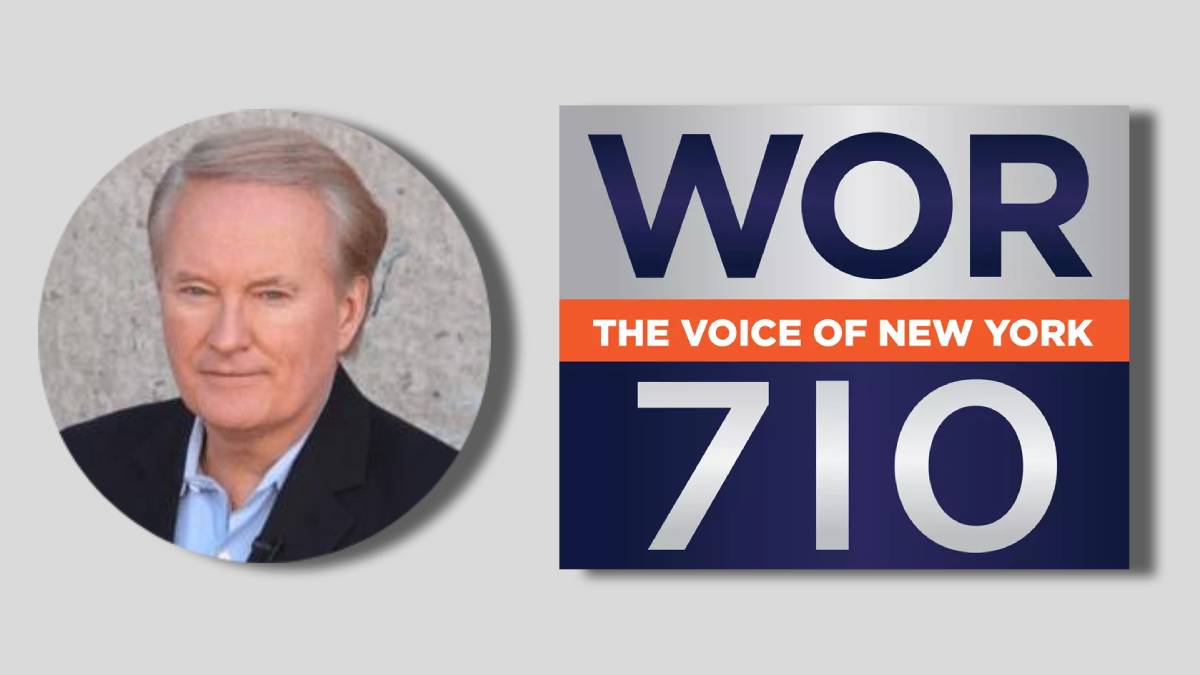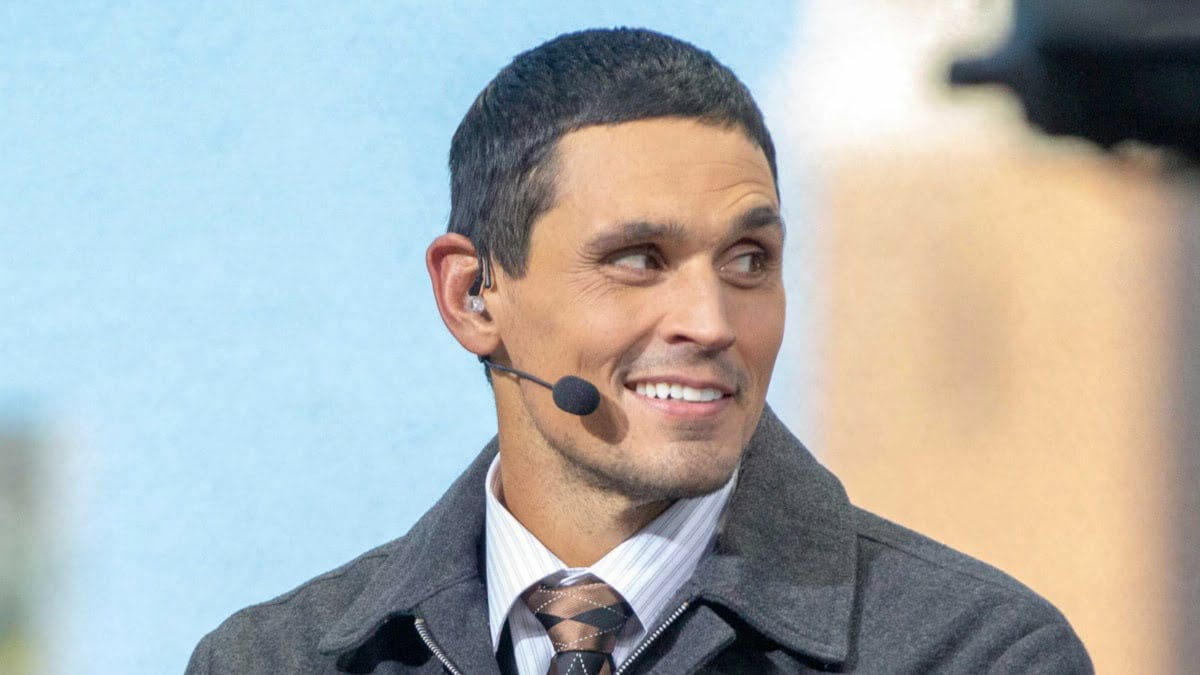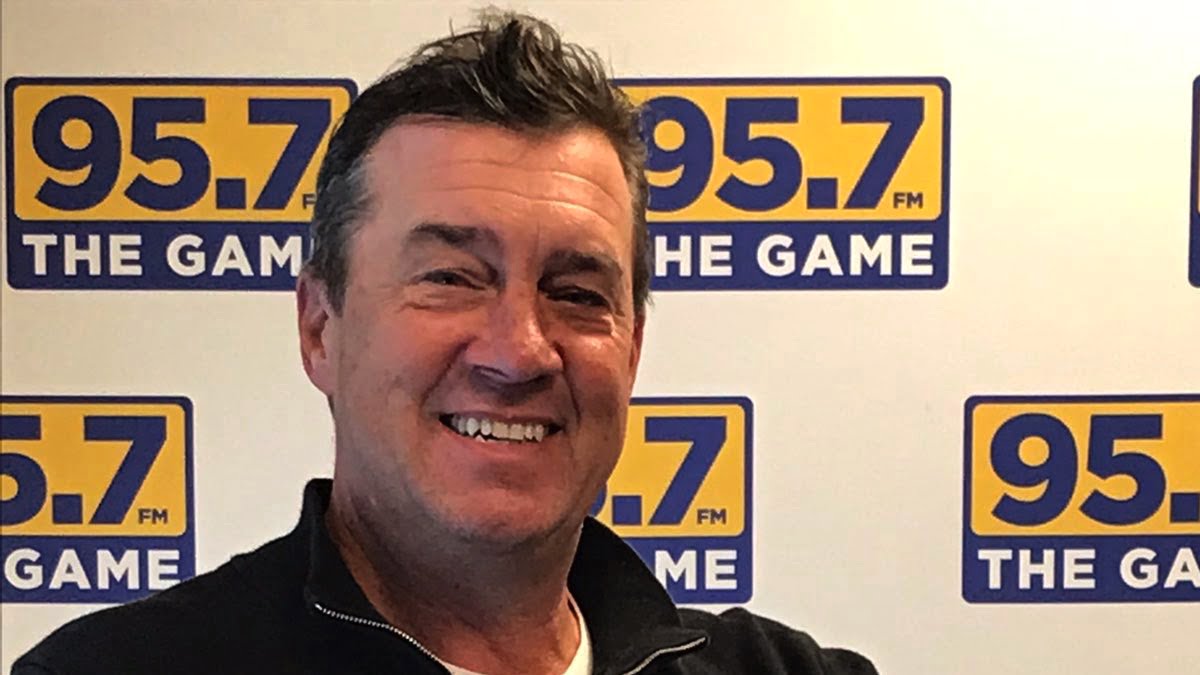Larry Mendte has assumed the role of news director at 710 WOR, marking his latest venture in the news world. Joining forces with Len Berman and Michael Riedel in the Morning, Mendte adds his wealth of experience to this powerful trio, forging a distinctive fusion of political perspectives and enlightening conversations.
His path to 710 WOR reflects his dedication to journalism. Prior to his full-time return to New York City, he penned articles and hosted television programs. Larry Mendte collaborated with multiple media organizations, including one in New Jersey, which has been affected by the FCC’s division of the state into northern and southern regions served by New York and Philadelphia. This division has left a void for millions of Garden State residents.
In his conversation with Barrett News Media, Larry Mendte delves into his role at 710 WOR and addresses a common criticism of journalism graduates – the inclination towards activism rather than objective reporting. He suggests that this trend may be influenced, in part, by certain teaching approaches in journalism institutions.
Additionally, Larry Mendte reflects on his ongoing journey, acknowledging the impactful work of his predecessor, Joe Bartlett, who always prioritized delivering the news to WOR listeners without letting personal opinions interfere.
Ryan Hedrick: Tell me about getting hired at 710 WOR and what your role is.
Larry Mendte: I’m the news director. However, there are so many great people in the newsroom; I think it’s the news director in the title only because they are all self-sufficient. I am the news person and another mic on the morning show with Len Berman and Michael Riedel in the Morning. That’s the exciting part of it. The news I’ve been doing all my life, and it’s great to be back doing news in New York. But working with two legends, conversing with them, and getting to know them is extremely exciting.
RH: What makes WOR’s morning show unique, and how do you fit in?
LM: I’m finding my role, and every single day it gets a little more comfortable, and I understand what I can contribute. It is, of course, a conservative talk radio station, and so we have an important niche in the market. We have competitors, but WOR has been dominant just about forever. There are ebbs and flows, but this morning show is exciting. I’ll tell you the two things that are exciting about it.
There are very few conservative shows that give the point of view of the other side so well. Len Berman is obviously not a conservative, and he is there to challenge Michael Riedel. Since I lean right, I am called in every once in a while. (Berman) is there to challenge what we say, making us stronger. It makes the conservative stronger to allow that other point of view, and then you can counter it.
It’s fascinating how that works in the morning, but as much as Michael and Len go at it, they never carry it into the next segment. There have been times when they have gone after each other, and you would think, ‘How are they going to get over this?’ They talk it out over the commercial break and are fine after that. I think WOR offers something that I’m not sure anybody in the country offers, and that is the other point of view.
It is a tightly formatted show. Most conservative talk shows are pretty free-formed, and the host decides loosely when to break except for the top and bottom of the hours. [WOR’s morning show] is tightly formatted, but it doesn’t feel like that. These two guys are so good, and Natalie [Vacca] is so good; they are always on track and are always able to get out of a topic and onto another one flawlessly.
RH: As the news director and third voice on an opinion talk show, how do you balance delivering trustworthy news to listeners while avoiding editorializing your newscasts?
Larry Mendte: I replaced Joe Bartlett, and he was a legend. He was at WOR for 37 years, and talk about daunting. I felt like when [David] Letterman was replaced. When Conan O’Brien came in, nobody knew who he was. I felt a little like that. He (Bartlett) is the one who set the tone, and he did it brilliantly. He gave strong conservative opinions and was trusted with the news. I think people have already been trained to separate the two. Joe laid the groundwork for me, and I just came in.
The news department here is self-sufficient. They have this down. You would never know how they lean politically because they cover the news without fear or favor and without bias. I am so proud to be a part of what they do because we could use this more across the country, especially on network news.
RH: Do you think WOR reporters and anchors feel bothered by the lack of trust in news and resulting disengagement from audiences due to perceptions of fake news?
LM: I don’t think that they think about it. I think that if you just go into a news story deciding that you’re going to cover the story without bias, you’re going to present the facts, and if there are two sides, you’re going to present two sides, if you go in thinking that way, then you can sleep at night.
You don’t have to worry about that narrative because they are not talking about you. I will attest to the fact that every single person in the newsroom looks at the news that way and delivers the news that way.
RH: Where did you work before WOR?
Larry Mendte: Right before WOR, I was doing commentaries for a group called Rosebud Media that owns a couple of newspapers, and I also wrote columns for the newspapers, but they sold. I was also working for a TV station and for WOR, doing some fill-in work as a host.
I was also working at WJLP, which is a TV station in New Jersey, and I was there for the last seven years, hosting a show called Jersey Matters. It was an important show to me, and I’m sad the station sold because New Jersey is not covered the way it should be.
The FCC and the network made this unholy deal years ago when they first cut up the country into markets. They decided the Philadelphia market would cover South Jersey, and New York would cover North Jersey, and those markets have been uncaring foster parents and rarely cover New Jersey as it should be. There are 10 million people there. It would easily be a top 10 market if you gave them the credit and coverage they deserve. New Jersey has been ignored.
RH: Are 710 WOR, 77 WABC, and 1010 WINS competitors in the morning? Who are your main competitors?
LM: Not really WINS—certainly, WABC, where I used to work. When I was at WPIX in New York doing national commentaries for Tribune, I was at WABC doing a show on Saturday and Sunday nights. WABC and WOR are competitors, and they go back and forth all the time. The funny thing is, after WABC was sold and they brought in some new people, I’m now working with a lot of people who were at WABC.
RH: One criticism of journalism graduates is their preference for activism over objective reporting. What are your thoughts about that?
Larry Mendte: I have not heard that, but it does make a lot of sense. I don’t blame the students or the generation, I would blame the schools themselves. There are far too many schools right now that have professors that never have reported. They have professors who have never been on the radio, never been on TV, never reported, and, for the most part, deal with theory.
When you deal with theory, that can be a dangerous place to go. If what you said is the case, I don’t think they are teaching them properly because you must completely take your emotions out of it. Maybe not for stories like the 9/11 attacks, but for most stories, especially political stories, you better not color it outside the lines.
I gave a speech one time at Neumann University, and somebody asked me, ‘What do you think of Fox News?’ This was in the mid-90s, and Fox News had just started to make a name for itself.
I said, ‘I completely understand why there is Fox News because there is absolutely a liberal bias in the mainstream media, but it’s the worst thing that can ever happen to the news because once Fox News is successful, you will have another network that will be the equal and opposite reaction, the ying to their yang and then who knows where it will go from there and then all of us will be more trained to be bias in our reporting’. So, here we are.
RH: How important is good news writing to the listener’s ear?
Larry Mendte: It’s everything. There is a real skill to write almost poetically sometimes to be able to write to do service to the story but still come off naturally. There are some great people throughout history who have been able to do it so well. Brian Williams was a wonderful writer.
I don’t know what he’s going to do next, but I hope his career isn’t over. There are so many people that I admire who write well. For me, that’s what I feel has always been my strength.
I had a guy call me one time who was a critic. He wanted to speak off the record, and he told me that he loved the way I did stories because he said I always started the story by telling people why they should care. He shared with me that he thinks that type of writing is a lost art.










